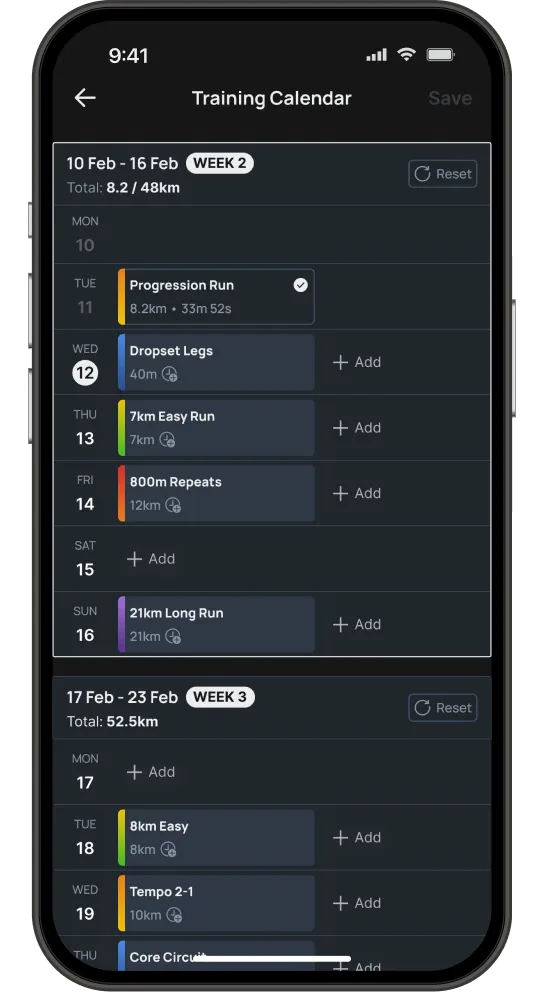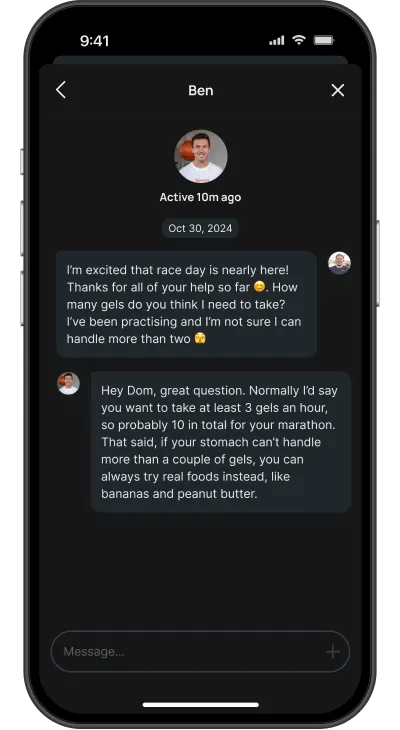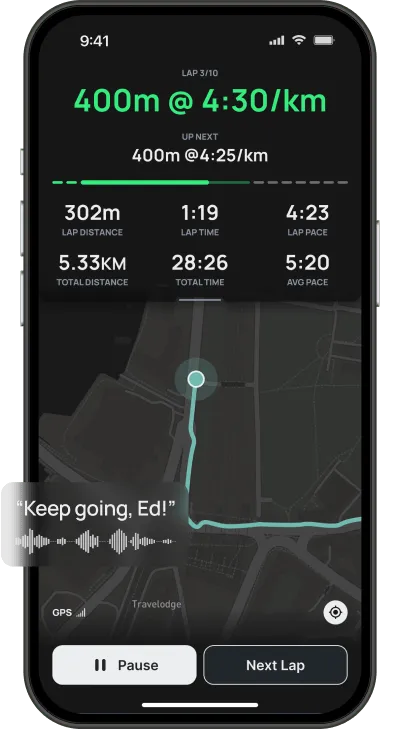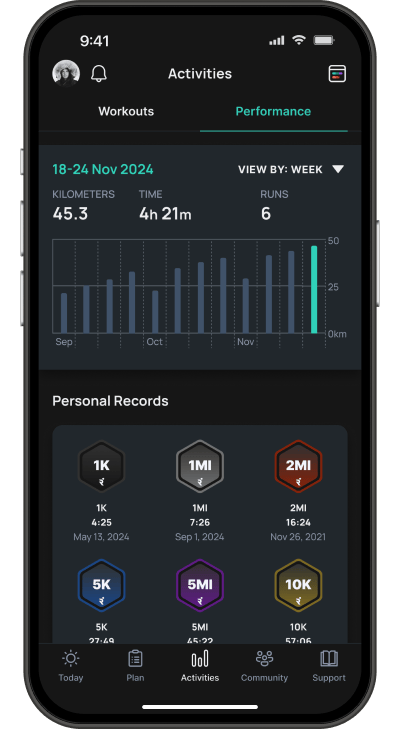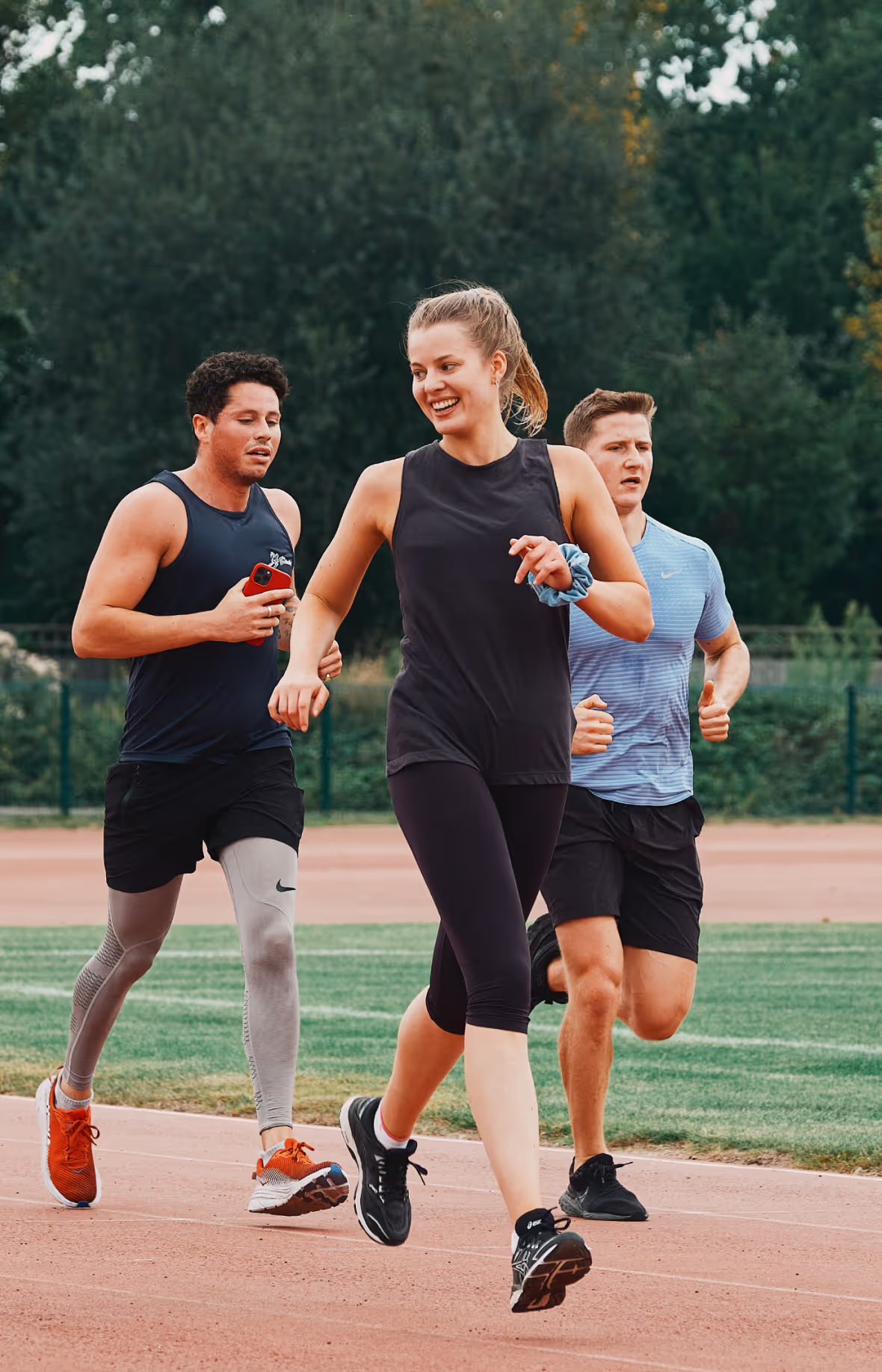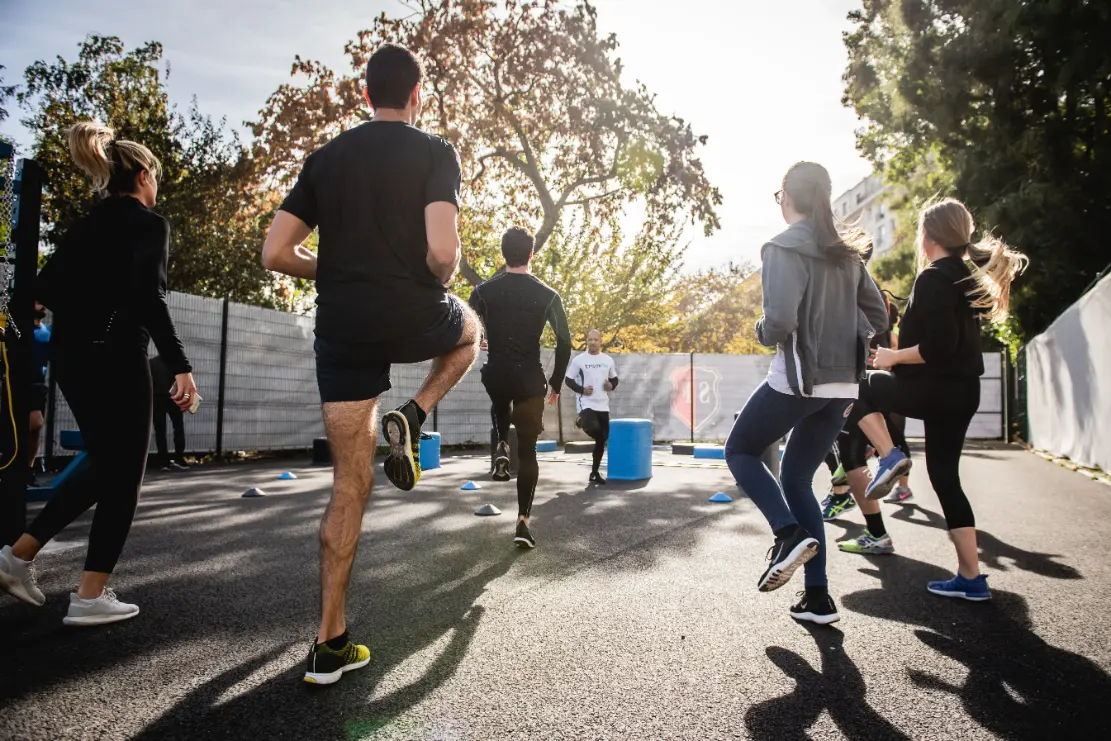New To Running
Every runner is different - that’s why the best way to start is with a plan that matches your fitness, goals, and lifestyle, giving you the structure and confidence to build from day one.
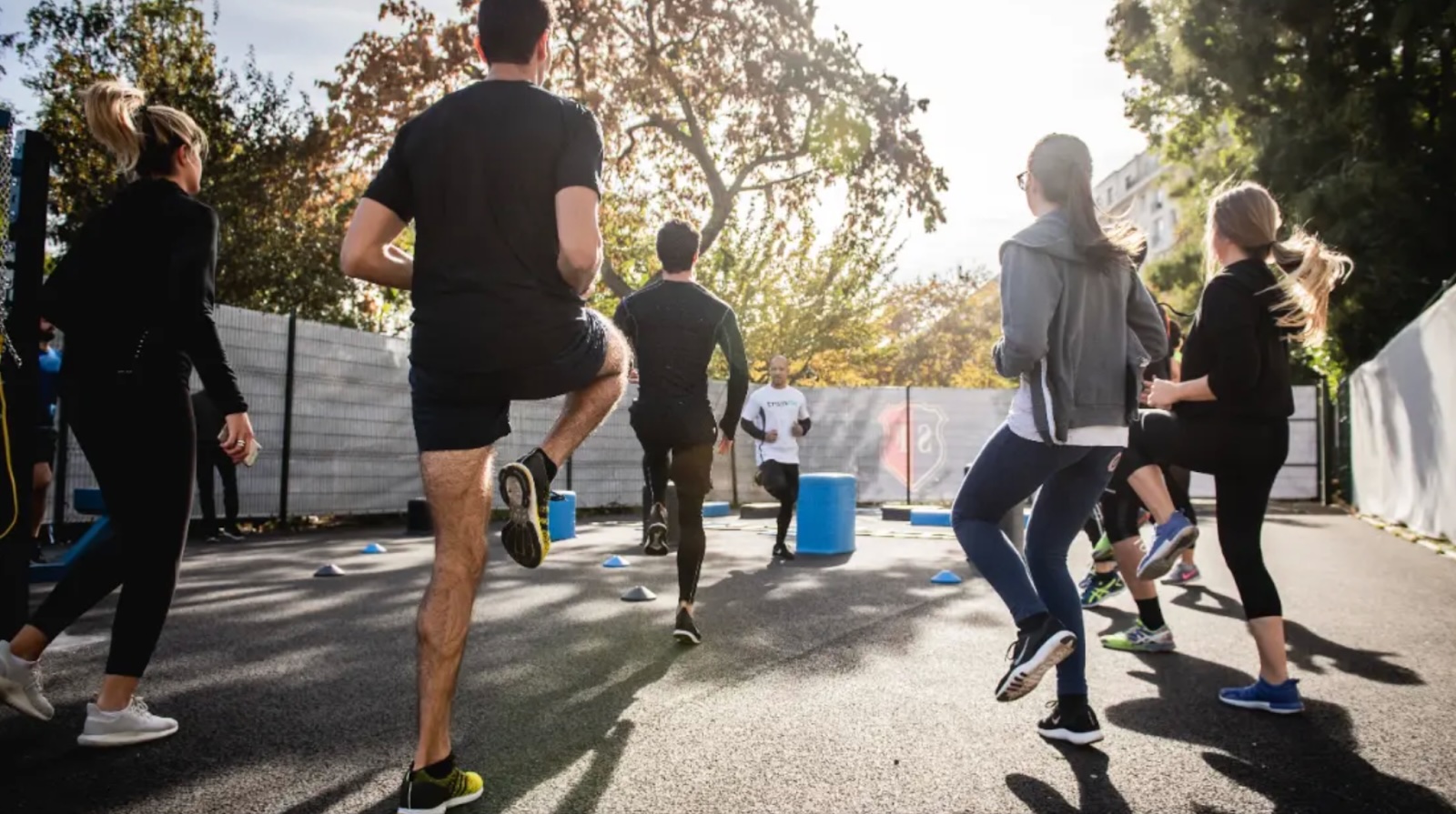
How to start running
Whether your goal is to run your first 5k, improve your fitness, or get back into running after time away, the key is starting steady and staying consistent. By focusing on form, building a weekly routine, and supporting your training with strength work, recovery, and good nutrition, you’ll set yourself up for success from the very beginning.
A popular first milestone is running 5k without stopping. At around 3.1 miles, it’s an achievable goal for almost anyone, even if you’re starting with no running experience or don’t feel especially fit right now. Once you can cover the distance comfortably, you can work on running it faster - or even sign up for your first race.
The most important step is consistency. Here are a few ways to make it stick:
• Build a weekly routine with a few runs you can repeat each week.
• Add your sessions to your calendar so they become part of your schedule.
• Sign up for a 5k race to give yourself a motivating target.
• Run with friends or a local club to make it social and fun.
The best way to bring all of this together is with structure. Runna will create a personalized beginner-friendly plan tailored to your goals, schedule, and preferences - guiding you through every run so you can start strong from day one.

Why choose our beginner running plans?
No matter your starting point or your goal, we’ll give you the plan, guidance, and support to build a running habit that sticks.
How to get started
Starting your running journey should feel simple and supported - and with Runna, it does.
Choose your plan
Pick your starting point and we’ll build a plan that adapts to you, whether you’re brand new, returning, or getting fitter.
Download the app
Download the app, log in, and you’ll have your full training plan - complete with runs, tips, and guidance - at your fingertips.
Run, run, run!
Simply tap ‘Go’ and follow along. Every session is broken down for you, so you always know exactly what to do.
Hit that goal
Stick with the plan and you’ll hit your first milestone, whether it’s a first 5k, better fitness, or just making running part of your life.
Workouts explained
Your beginner plan includes a mix of sessions - each designed to ease you into running, build fitness safely, and keep you progressing.
Tips for starting running
These expert-backed tips will help you train smarter, avoid injury, and stay motivated. From pacing and recovery to gear and mindset, discover just a small snippet of all the tips, nutrition and coaching advice you'll have at your fingertips with a Runna training plan.
Nutrition
Training is only part of the equation - what you eat has a big impact on how you feel and perform. Good nutrition will give you the energy to train, help your body adapt, and speed up recovery.
- Keep protein high to support muscle repair.
- Eat extra carbs before tougher runs or workouts.
- Try caffeine in training if you want an extra boost in speed or focus.
Carbs are especially useful for beginners. Complex carbs like oats, whole grains, quinoa, sweet potatoes, fruits, and vegetables provide slow-release energy and keep you feeling steady. Try not to rely on lots of sugar, which can cause spikes and dips in energy.
Race day nutrition
If your first goal is running a 5k event, keep race-day fueling simple:
- Eat a carb-rich meal 2-3 hours before the start.
- Limit protein, fat, and fiber before running - they slow digestion and may feel heavy.
- Stick with foods you’ve tested in training. Nothing new on race day.
Tip: For many runners, a light carb snack closer to the race can also help, but only if it’s something tested during training.
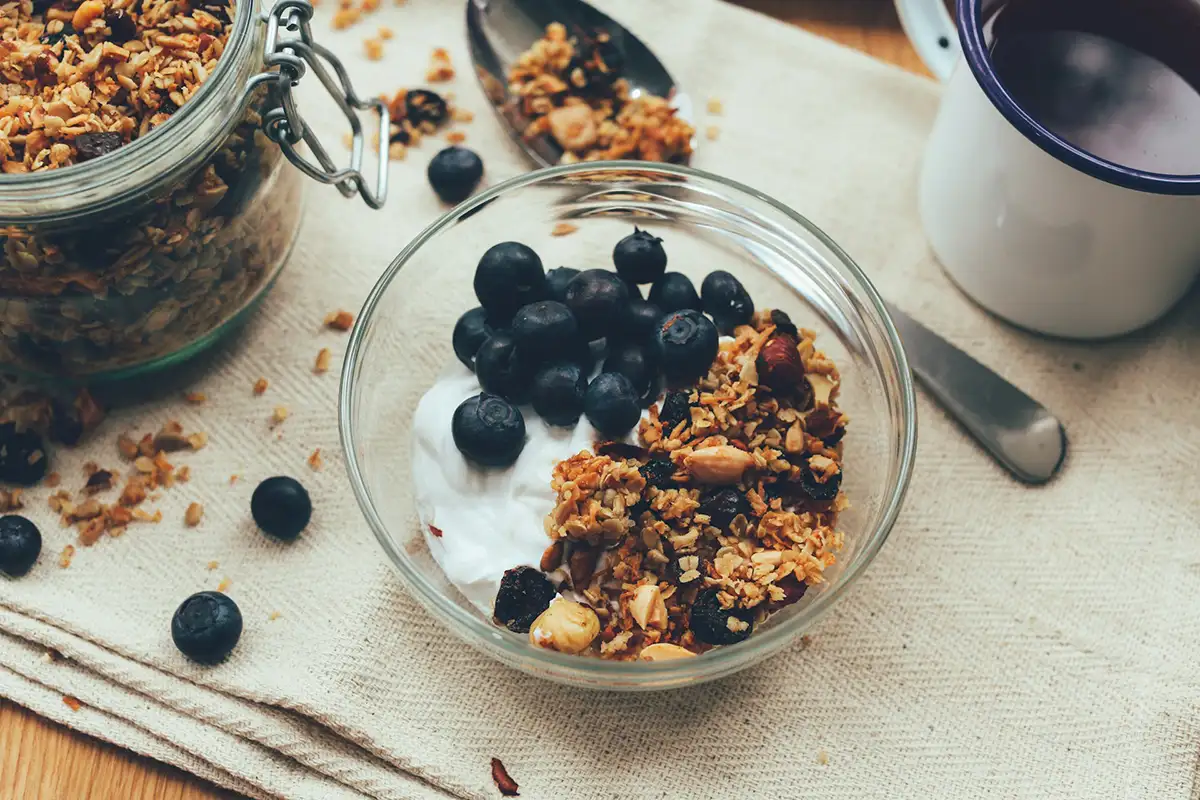
Cross-training and strength training
Adding cross-training and strength training to your running plan helps you achieve two things: reduce injury risk and improve your performance.
Cross-training is any activity that builds fitness without the same impact as running. Cycling, swimming, rowing, or using the elliptical are all great options. These workouts keep your aerobic engine strong while reducing stress on your legs. They’re also a useful way to stay active if you’re carrying a niggle, or if you want to add variety to your week. Choosing something you enjoy makes it easier to stay consistent.
Strength training is one of the most effective ways to improve both performance and injury resistance. Building muscle strength improves running economy by 8–12%, which means you can run faster with less effort. Stronger muscles also handle impact better, reducing the risk of injury. Focus on calves, quads, glutes, hamstrings, and core.
Even 1–2 short strength sessions per week can make a big difference. With Runna, you can add beginner-friendly strength sessions to your plan, designed to fit your schedule and ability.
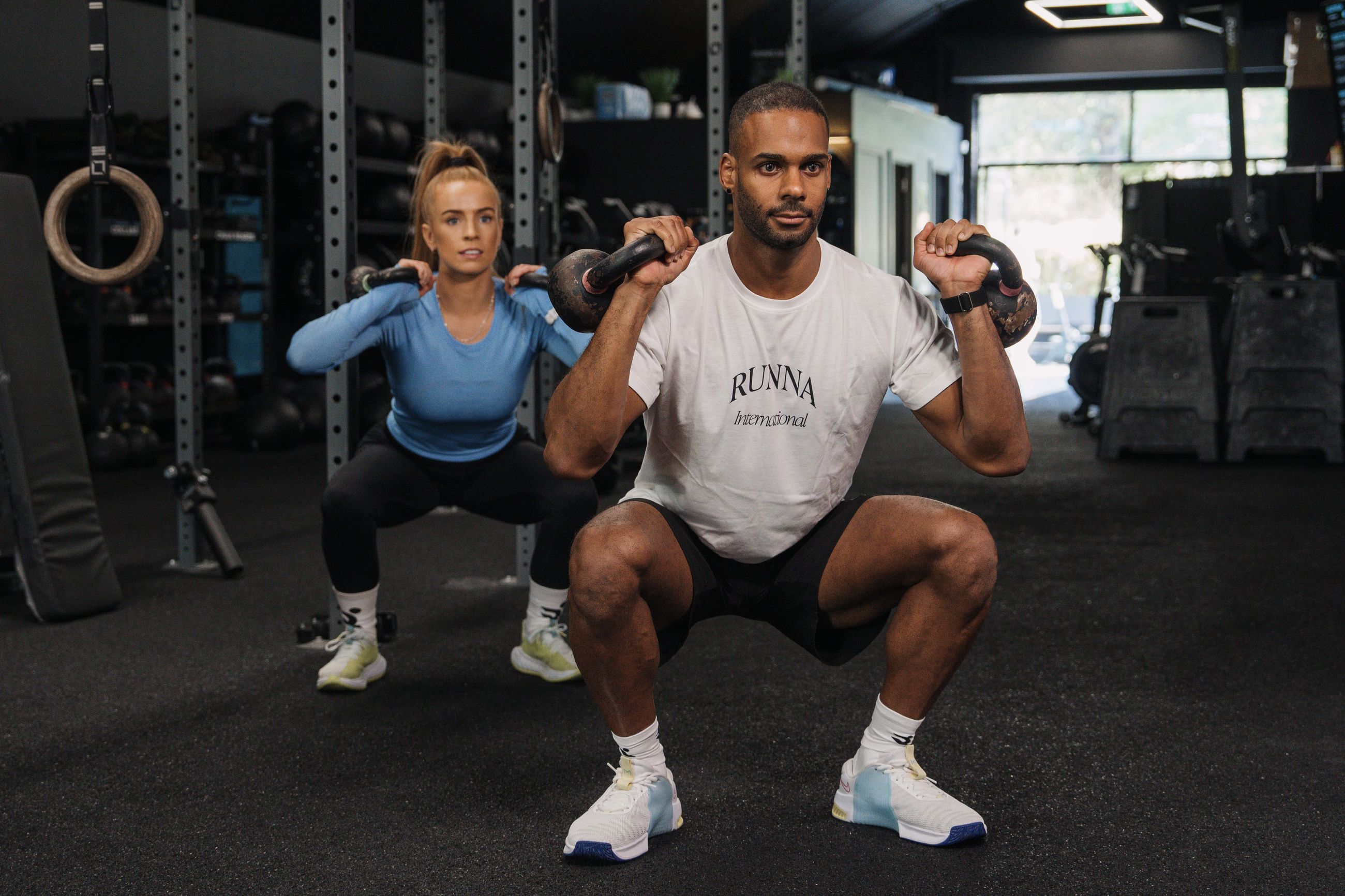
Pacing
For beginners, pacing isn’t about hitting exact splits on a watch. It’s about finding effort levels that let you progress without burning out.
Here are the main approaches:
- Run-walk pacing: Start with walk-run intervals, adjusting the balance as you improve. For example, alternate 1 minute of running with 1-2 minutes of walking. Gradually increase the running segments and shorten the walking ones.
- Conversational pace: On easy runs, you should be able to hold a conversation without gasping. This is your foundation pace for building endurance.
- Effort-based pacing: Think of effort on a scale of 1-10. Easy runs should feel like a 3-4, steady runs like a 5-6, and harder efforts (like strides or short intervals) around 7-8.
The key is patience. Running slower than you expect is normal - it allows your body to adapt, build fitness, and reduce injury risk. As you get stronger, your “easy pace” will naturally become faster. Runna provides pace guidance for each session so you always know how hard to run.
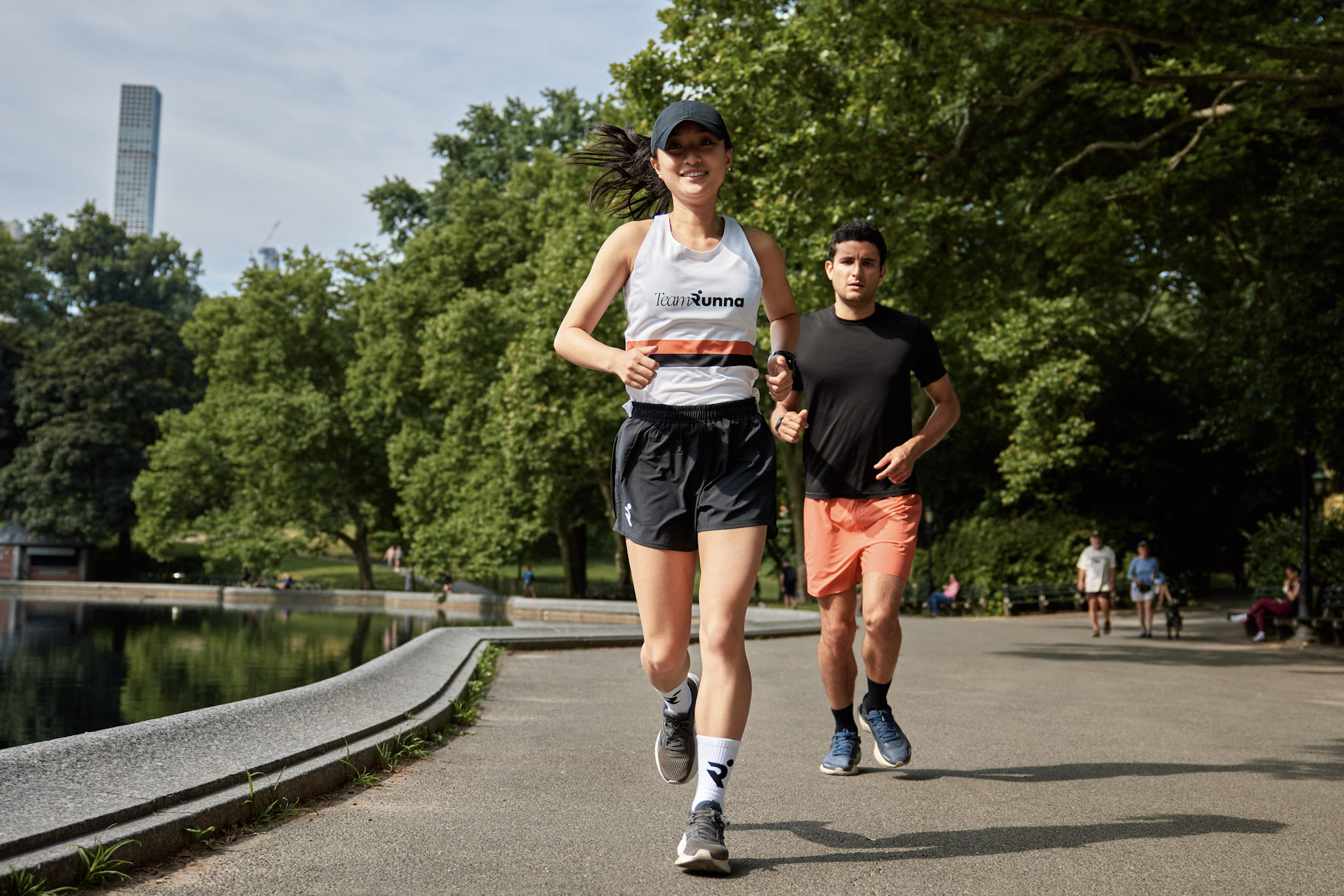
Form
Good form makes running feel smoother, safer, and more enjoyable - especially when you’re just starting out. Small improvements in form can help you conserve energy, reduce impact, and lower injury risk.
- Posture: Run tall, with your chest open and shoulders relaxed. Imagine a string gently pulling you upward.
- Stride: Keep your steps light, short, and quick rather than long and heavy. This reduces impact and helps efficiency.
- Arms: Drive arms back and forth, not across your body. Relax your hands - no clenched fists.
- Relaxation: Keep your face, jaw, and shoulders loose. Tension wastes energy.
Form takes practice and won’t change overnight. Focus on one cue at a time - like running tall or keeping strides light - until it feels natural.
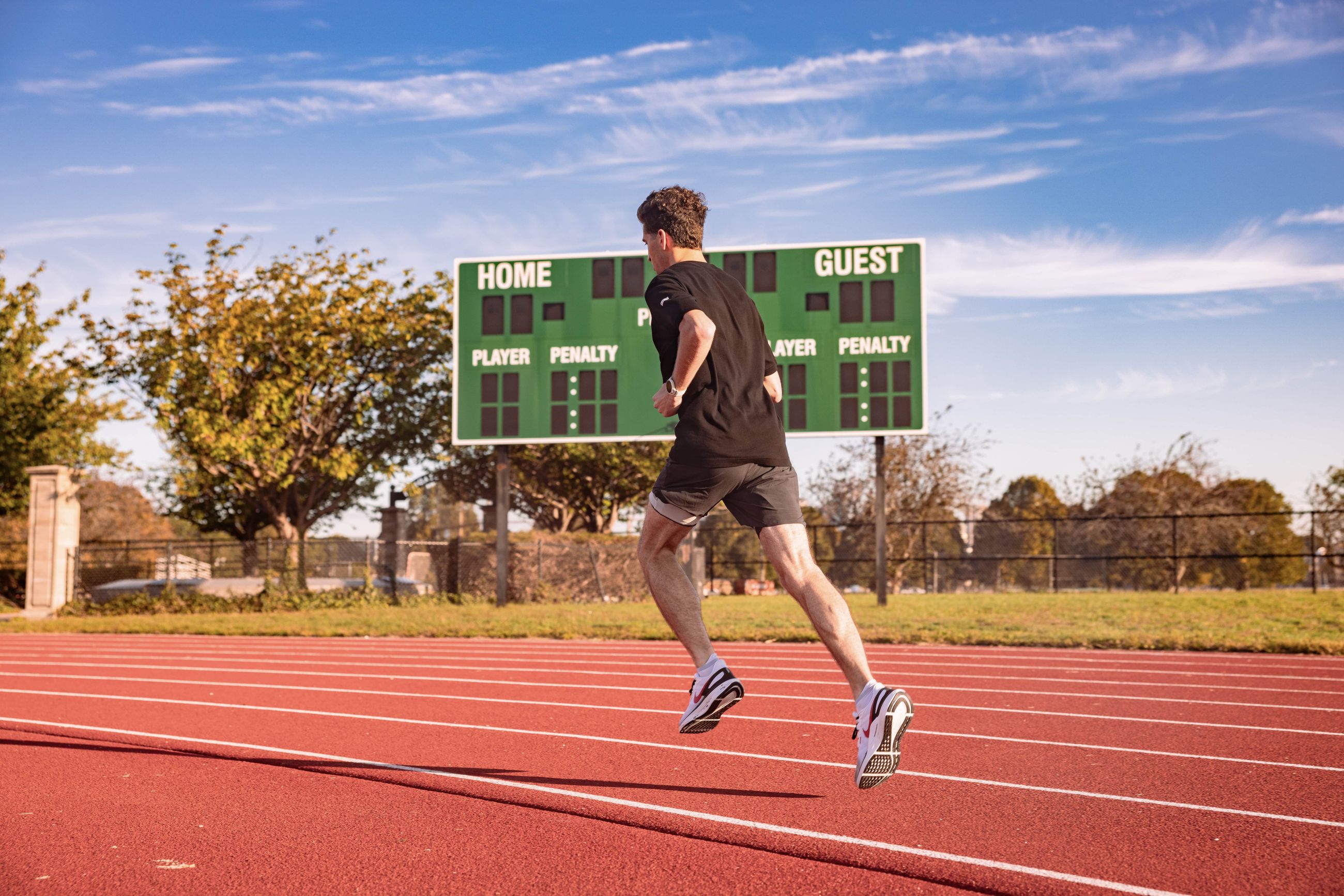
Recovery
Your body makes progress when you rest, not just when you train. Recovery is especially important for new runners, because your muscles, joints, and cardiovascular system are all adapting to a new kind of stress. Getting it right will keep you healthy, consistent, and motivated.
- Sleep: Aim for around 8 hours per night. Sleep is when your body repairs muscle tissue, balances hormones, and restores energy. If you can, keep a consistent bedtime routine.
- Nutrition for recovery: After runs, refuel with a mix of carbs to replenish glycogen and protein to repair muscles. Even a simple snack like yogurt with fruit or toast with nut butter can make a difference.
- Mobility work: Yoga, Pilates, or simple stretching helps reduce stiffness, improve range of motion, and keep you feeling light on your feet. Just 10 minutes after a run can go a long way.
- Massage and tools: Foam rollers, massage guns, or an occasional sports massage can ease tight muscles and promote blood flow. Start gently - even a few minutes on major muscle groups like calves and quads can speed up recovery.
- Active recovery: Not all rest has to mean doing nothing. Walking, gentle cycling, or swimming helps circulation and reduces soreness without putting extra stress on your body.
- Listen to your body: Expect some muscle soreness in your first few weeks. If pain feels sharp, persistent, or unusual, take an extra rest day. Consistency over time matters more than forcing every single run.
Remember: rest is part of training, not a break from it.

Gear
The right gear won’t make you instantly faster, but it can make running far more comfortable and reduce your risk of injury. Poorly fitted shoes or the wrong clothing can turn running into a struggle, while the right kit helps you focus on the joy of moving.
- Shoes: The most important purchase for any runner. Good running shoes absorb impact, support your stride, and reduce injury risk. Visit a running shop if you can - many offer gait analysis or treadmill tests to match you with the right pair
- Clothing: Technical fabrics like polyester or nylon wick sweat and dry quickly, keeping you comfortable. Layer up in cooler weather with lightweight, breathable gear.
- Running watch or GPS tracker: Tracking your runs helps you stay motivated and measure progress. Beginners can start with a phone app, but watches from brands like Garmin, Coros, or Apple can offer extra insights. Runna syncs with Garmin, Apple Watch, Coros, and Strava to keep everything in one place.
- Accessories: A running belt or armband makes it easy to carry your phone, keys, or a small snack. In warmer conditions, hydration packs or handheld bottles can help, even on shorter runs.
- Weather protection: In summer, use high-SPF sunscreen and consider a cap or visor for sun protection. In colder weather, gloves, headbands, or thermal layers can make running much more enjoyable.
Golden rule: use your training to figure out what works for you so that race day - or your first milestone run - feels smooth and stress-free.
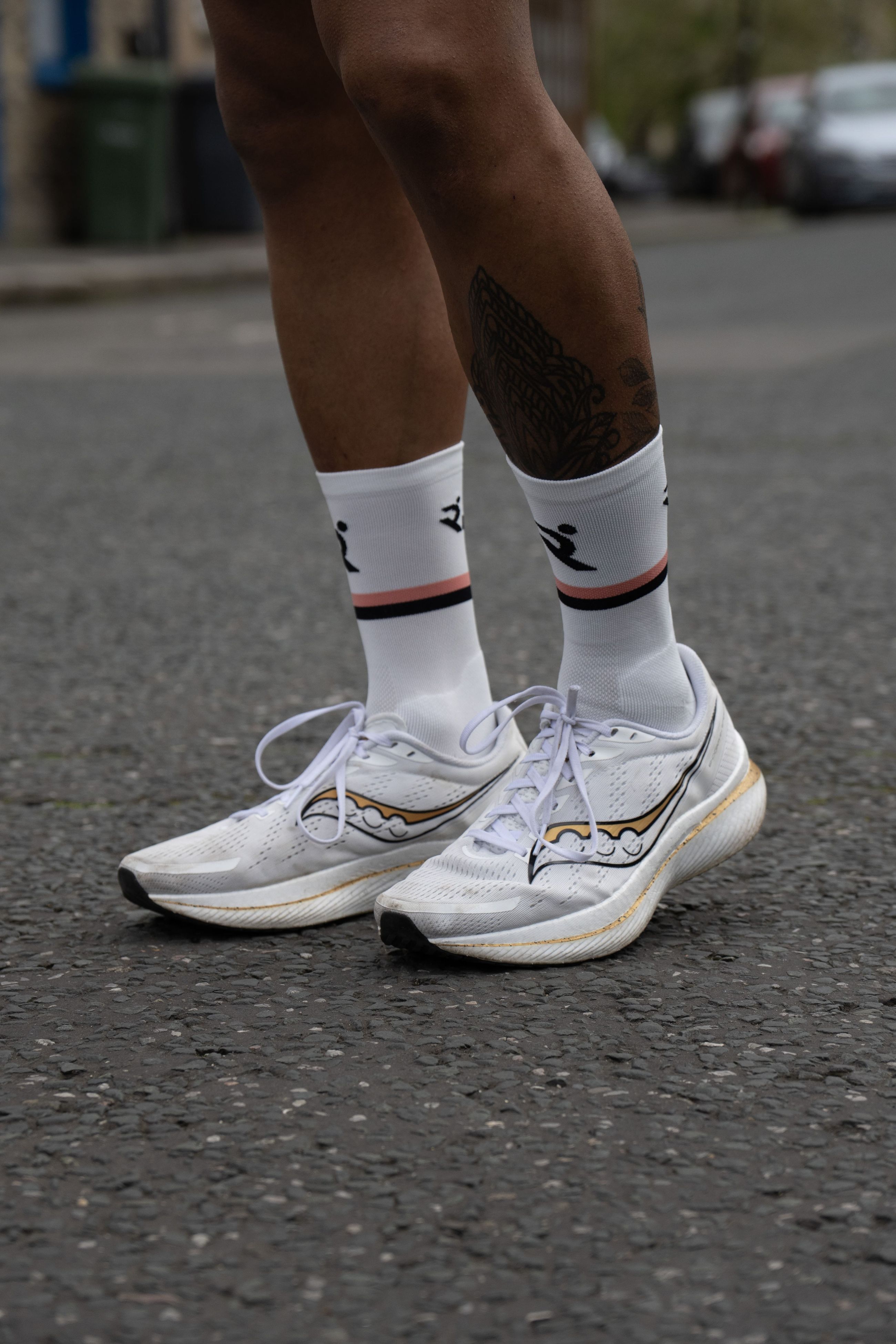
As featured in




Stories from Runnas
FAQs: All you need to know about starting running
5k distance: how long is a 5k in miles?
A 5k is 5 kilometers, which is approximately 3.1 miles.
How long will it take me to run a 5k without walking breaks?
If you’ve never run before, building up your endurance towards a 5k distance usually takes anywhere from 6 to 12 weeks.
One of the best ways to achieve this is to use our new-to-running plan, which is 8 weeks long and will help you gradually improve your running ability with walking and running sessions towards running a 5k in one go.
Which running plan should I pick?
Choose a running plan that matches your fitness level and schedule. For each plan, you can set the number of training sessions you wish to have each week and add optional strength training to help you become fitter and healthier.
What 5k time should I aim for?
If you’re a complete beginner or recovering after a long break from running, aiming to run 5 kilometers is already a fantastic goal!
Once you get to running 5k in under 60 minutes, you can use one of our faster 5k plans to improve your running performance.
5k training and injuries: What should I do if I'm recovering from an injury?
If you’re recovering from an injury, running-related or not, you need to take it slow and listen to your body. Consult with your doctor before you start running to discuss a timeline for returning to running.
Once you get their green light, you can do a 1-minute jog test and a 30-seconds hop test to see whether you get any pain. Then, once you’re ready for your first run, go for a 10-minute test run broken down into 2-minute intervals to see how you feel.
Read more about post-injury training.
If you’re experiencing knee pain after running, this is often not related to any trauma or specific injury, but might instead be an indicator of poor running technique or simply having set a weekly mileage goal that’s too ambitious.
Find out how to manage a runner's knee safely and efficiently.
How can I improve my 5k time?
If you’re able to run 5 kilometers in under 60 minutes, you can start working on improving your 5k time with a personalized faster 5k training plan.
Runna’s plans use different types of runs, such as interval and tempo training, long runs, and speed work, to help you gradually improve your performance and 5k finishing time.
Running and general fitness: Do I need to do strength training to run?
Strength training is not a must, but it’s a great addition to any runner’s training program. It can help you improve your running economy, making you a faster and stronger runner, and also reduce your risk of injury. Win-win, right?
With Runna, you can seamlessly add customized strength training sessions into your running plans.
What's the first running goal I should aim for as a beginner?
If you’re new to running, aiming to run a 5k in under 60 minutes or without stopping to walk is a fantastic goal to get started.
With it, you can set a healthy foundation of a (hopefully!) lifelong habit of running where you progressively improve your running performance and set new goals as you go.
Then, you can start training for your first 5k race with one of our faster 5k running programs.
With Runna, you can get a personalized running plan to help you achieve any goal, regardless of your current level.
Inspiration

The Ultimate 5k Training Guide
All the training tips you need to level up your 5k running journey, from mileage to training types.

How to Improve Your Running Form
Want to run efficiently and reduce your chance of injury? Here are our top tips on how to nail your running form and run stronger!

5k & 10k checklist: All the essentials for a smooth race
Ready for your next 5k or 10k race? Make sure you have all the essentials you need to bring to the start line with you for a smooth race – and get ready to set a new PR!

